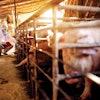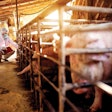The US feed industry logged 46,500 hours of community service in 2013, almost double the hours compared with 2012, according to an annual informal survey conducted by the American Feed Industry Association (AFIA). The survey also concluded the industry donated close to $3 million to local charities last year.
The AFIA Sustainability Initiative Survey gathers information from AFIA members who donated funding and volunteer hours as an effort to support sustainability within their communities.
Of the $2,989,864 donated, industry sponsors said they most frequently donated to education programs (including schools and universities), local fire and police departments, area hunger relief efforts and food banks, and agriculture-related programs such as FFA, 4-H, county and state fairs (including livestock exhibitions). The largest contribution for 2013 from a sole organization, company or association according to the survey is $1 million.
“The AFIA Sustainability Initiative Survey results show the U.S. feed industry’s reach goes far beyond producing safe, quality feed for livestock and pets across the globe. The industry also understands the value of giving back and the impact – no matter the size of the contribution – it can have by supporting its local communities,” said AFIA President and CEO Joel G. Newman.
AFIA established the Sustainability Task Force in 2009 under former board Chair Brian Rittgers. The task force identified five key sustainable focal points, designed for communication and collaboration between organizations, companies or associations.
“Support the community” is one of the five focal points AFIA asks members to take part in as part of its sustainability initiative. The four remaining focal points are optimizing the use of energy and natural resources; the promotion of understanding and appreciation of U.S. food production; production efficiency and productivity; and embracing innovation.

















